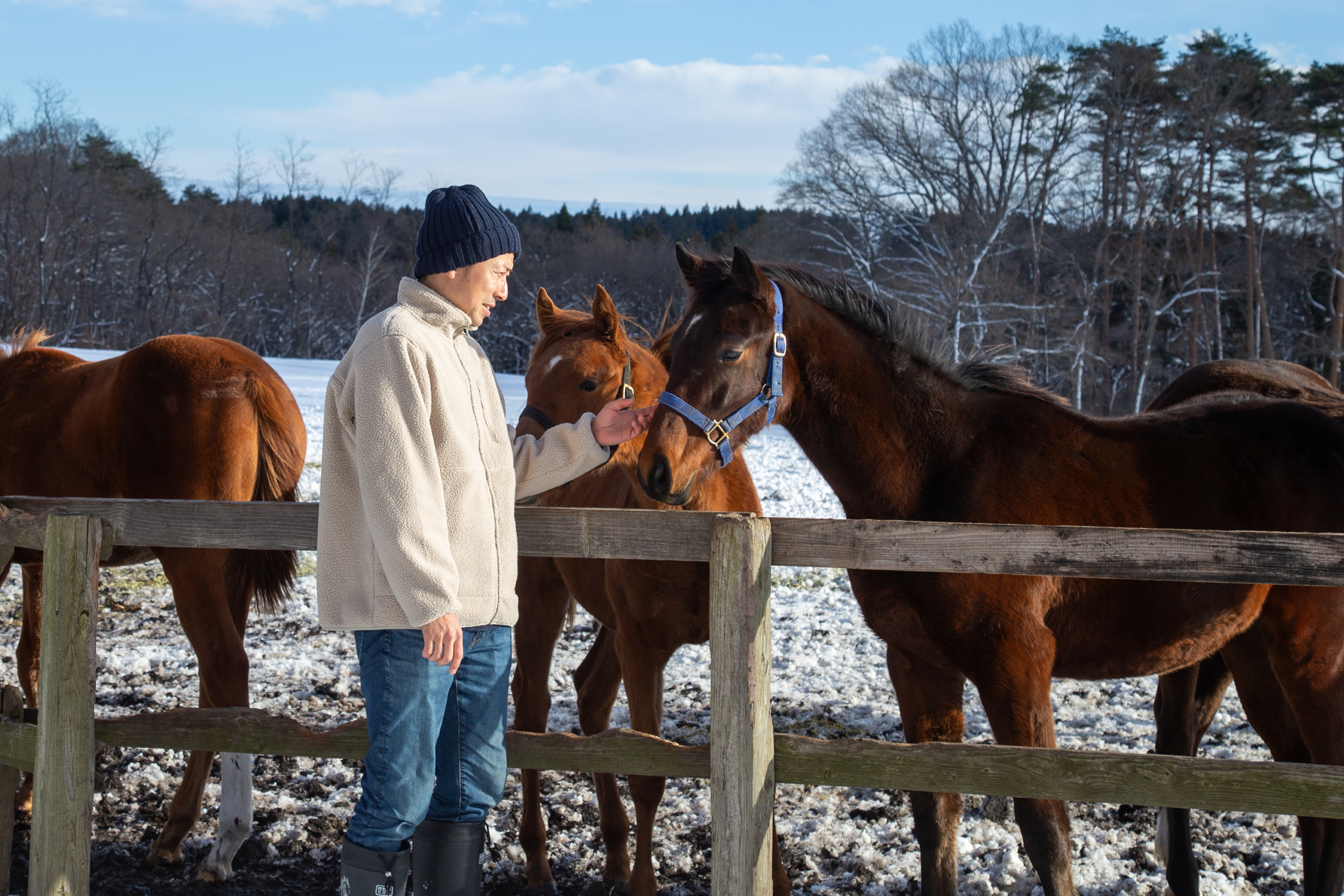The Tohoku Bokujo Ranch in Aomori Prefecture, which supplies organic produce to the Hotel Continental Fuchu in Tokyo, runs on an ideal circulation of natural resources.
The 30 or so thoroughbreds kept there are fed with chemical-free grass, hay and wild herbs grown on the farm. This allows their manure, which is also free of unnatural chemical substances, to be used as a natural fertilizer for the ranch’s vegetables and other crops.
“Among the horses we keep are those that have already retired from racing. But it does not make them less important to us because it is their manure that enriches our soil and nurtures our vegetables,” said Kazuki Kashiwazaki, who oversees the ranch.
“I joined the ranch almost seven years ago and had to learn about farming almost from scratch. I did not have any preconceptions about the work, allowing me to be open-minded about learning and comparing various methods to choose what’s best for our crops and animals,” he said. Kashiwazaki now leads a team of 17 workers in managing the 100-hectare farm. He can even tell the condition of the soil from the kinds of wild herbs growing in each area.
Among the more than 100 kinds of crops that Tohoku Bokujo grows organically is dent corn. Out of the 10 hectares of farmland on the ranch, four are devoted to growing dent corn, which is the main feed given to the 800 laying hens that provide its well-regarded eggs.
These Asunaro chickens can be traced back to Chile’s Araucana breed. Asunaro eggs are known for their pale blue-green shells and higher than usual yolk ratio. But what makes Tohoku Bokujo’s eggs truly special is their rich taste, which is free of the supermarket smell – an odor that derives from what chickens are fed and how they’re bred.
Tohoku Bokujo’s chicken feed contains locally produced natural, nonchemical ingredients, such as fish powder, scallop shells and rice bran. It also raises its chickens in a floor-based feeding environment within a spacious shed equipped with windows to provide fresh air and sunlight.
The chickens’ waste is also mixed into the soil of the farm, allowing Tohoku Bokujo to continue circulating natural resources long after its eggs have been consumed at the hotel’s restaurants. “The hotel returns the egg shells to us because they can be crushed and used as a soil conditioner,” Kashiwazaki said.
In addition to supplying the Hotel Continental Fuchu, the farm makes pickles and several other processed foods at a factory built several years ago, making use of locally produced salt and vinegar, as well as beet sugar from Hokkaido.
“We use no preservatives or chemical seasonings because organically grown vegetables are tasty as they are. We only need the simplest ingredients to process and preserve them,” Kashiwazaki said.




